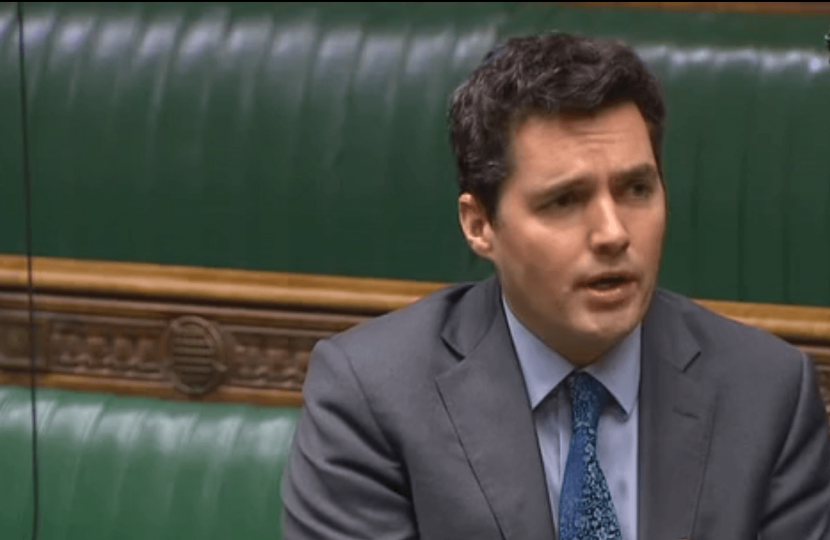
Today Huw spoke in the debate on a motion on Mental Health and Suicide within the Autism Community. You can watch Huw speak here: https://goo.gl/pkQqcp and read his speech below.
It is a pleasure to follow the hon. Member for Bristol West (Thangam Debbonaire). She talked of having a constituency surgery exclusive to those who are on the spectrum. I actually had that pleasure last week, although it was not something that I fixed. It was just that everyone who booked an appointment had issues and was on the spectrum. That is telling about how much pressure MPs rightly face from our constituents who have such huge challenges.
I thank the hon. Member for East Kilbride and other parts of her constituency that are harder to say for securing this debate. It is a real pleasure to have the debate, because it is timed very well, coinciding with a report that has been published by the all-party parliamentary group on autism entitled “Autism and education in England 2017”. The report is particularly relevant because, when it comes to mental health and those on the autism spectrum, I am afraid to say that much starts to go wrong in schools, which are still not equipped to deal with the many people who face complex issues that arise from autism.
It was a pleasure for me to co-chair the parliamentary inquiry that led to the report with my constituency neighbour, my hon. Friend the Member for Lewes (Maria Caulfield). We had three inquiries in Parliament, and we heard from young people on the spectrum, parents and educational experts about where things were not working and where they could work better. The report is a positive one that discusses what could be done better, and that is not just down to money; it is a question of sharing best practice. Unfortunately, the reality of the current situation in schools is that less than 50% of the thousands of people who responded to our request for information felt happy at school, which meant that they felt uncomfortable at school. Fewer than 50% of teachers felt that they were equipped to deal with pupils who have autism. A lot of this comes down to a lack of training that many teachers have.
It is fantastic that the Government will ensure that initial teacher training includes autism awareness, but there are many teachers—including headteachers—who have already been through teacher training and are now teaching in schools but do not have sufficient understanding of the needs of autistic children. That can go wrong for the autistic child, and indeed their parents, by leading to exclusion. Of course, exclusion then leads to isolation, and isolation leads to mental ill health and, dare I say it, suicide. That is where we can do better. Unfortunately, an autistic child at school is three times more likely to be excluded than those who are not on the spectrum.
We need more training in schools and better sharing of good practice. It should not just be the case that specialist schools have all the expertise. If 70% of all pupils who are on the spectrum are in mainstream schools, we need the specialist schools to share what they know with the mainstream schools. Only when we start to tackle that will we actually do better.
I was delighted that the Government welcomed the report. We are now very much looking for them to support the recommendations in it. It will be launched by the all-party group at the beginning of next year, and I very much hope that all right hon. and hon. Members who are here today will come along and support us.
In the time I have left, I want to touch on the many challenges faced by those who have left the school system and are now in the workplace. One of the people who came to my constituency surgery last week wanted to talk about the struggles he has connecting with his jobcentre. I have committed to go along with him, meet the new work coaches we have through the roll-out of universal credit, see the application process and see how he can follow it through.
I am particularly pleased that the Government are now looking at tailoring support for those struggling to enter the workplace, recognising that those left seeking jobs have individual needs, and are looking to ensure that individual specialists are in place in jobcentres, including those ready to help people with mental health difficulties.
I want to again ring the bell for what we can do better in schools, so that we can support them to make sure that the issue of mental health for those on the spectrum is recognised. We must also absolutely believe that we can all do better, across parties.




